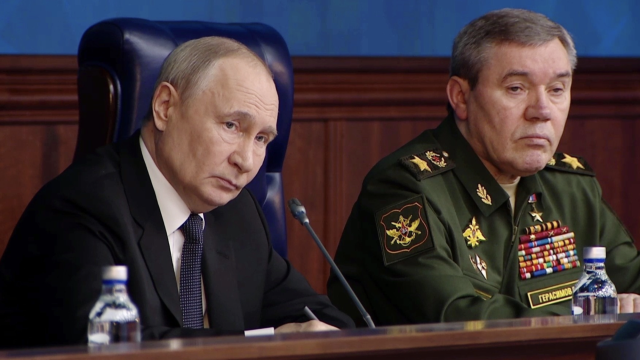David Peattie, BP's top executive in Russia, was quoted in leaked U.S. cables as expecting TNK-BP to be broken up by the end of this year by Rosneft, Britain's Guardian newspaper said Tuesday.
Citing leaked U.S. embassy cables, the newspaper reported that Peattie said BP saw Rosneft as its long-term partner in Russia, rather than TNK-BP.
BP and Rosneft agreed Friday to start joint exploration for offshore oil and gas, in a deal that gives the British company access to areas of the Arctic previously reserved for Russian oil companies.
"Peattie said that, over the medium term, in two to three years, BP expects TNK-BP will be taken over by the Russian government and split into separate oil and gas components that Rosneft and Gazprom will control respectively," the newspaper cited the cable, dated November 2008, as saying.
The Guardian did not specify where the leaks came from. The newspaper quoted BP as saying the predictions are out of date.
"That was then, this is now. It sounds like those U.S. Embassy statements were very soon after our bruising boardroom dispute with [BP's partner in TNK-BP] AAR. There has been a lot of water under the bridge since then," BP said.
Analysts are advancing a variety of predictions about the influence the deal will have on TNK-BP, which provides almost a quarter of the British giant's output.
It might be the first step in the unification of TNK-BP and Rosneft, Merrill Lynch analysts wrote. Or perhaps, as their colleagues at Credit Suisse think, TNK-BP's shareholders have resurrected plans to hold an initial public offering. In 2008, they were ready to place up to 20 percent of the shares in TNK-BP, but the financial crisis pre-empted the stock issue.
TNK-BP itself could have an influence on the deal as well. Its shareholders have an agreement on exclusive cooperation in new projects in Russia and Ukraine.
If either partner — BP or AAR — finds a new project in those countries, it is obliged to inform TNK-BP management in writing before beginning substantive negotiations, said Stan Polovets, AAR chief managing director. Then the management makes a recommendation to the board of directors, which decides whether the deal is of interest to TNK-BP or not.
TNK-BP knew about the Arctic negotiations. They went on for about five years, Polovets said, but they had not come to any specific results. The current agreement is not final either, according to the consortium's information. Apparently, BP will introduce it into the TNK-BP board when the details are settled. Then TNK-BP will decide whether the deal is of interest to it.
"They will most likely be interested," Polovets said.
(Reuters, Vedomosti)
A Message from The Moscow Times:
Dear readers,
We are facing unprecedented challenges. Russia's Prosecutor General's Office has designated The Moscow Times as an "undesirable" organization, criminalizing our work and putting our staff at risk of prosecution. This follows our earlier unjust labeling as a "foreign agent."
These actions are direct attempts to silence independent journalism in Russia. The authorities claim our work "discredits the decisions of the Russian leadership." We see things differently: we strive to provide accurate, unbiased reporting on Russia.
We, the journalists of The Moscow Times, refuse to be silenced. But to continue our work, we need your help.
Your support, no matter how small, makes a world of difference. If you can, please support us monthly starting from just $2. It's quick to set up, and every contribution makes a significant impact.
By supporting The Moscow Times, you're defending open, independent journalism in the face of repression. Thank you for standing with us.
Remind me later.





